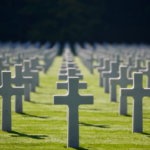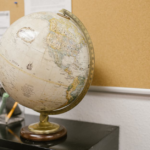Daddy What Did You Do in the War? Exploring the Impact of War on Films and Actors
Daddy, What Did You Do in the War? Exploring the Impact of War on Films and Actors
The Role of War in Film
War has been a popular theme in films for many years, captivating audiences with tales of honor, sacrifice, and the human condition in extreme circumstances. From classic war movies such as “Casablanca” and “Saving Private Ryan” to more recent releases like “Dunkirk” and “1917,” filmmakers have used war as a backdrop to tell compelling stories and explore the impact of conflict on individuals and society.
The Impact on Actors
Actors themselves are not immune to the impact of war on their lives and careers. Many actors have served in the military before pursuing their careers in the entertainment industry. Veterans such as Charles Bronson, Clint Eastwood, and Elvis Presley all served in the armed forces and drew upon their experiences in their film roles, bringing a level of authenticity to their performances.
Challenges and Influences
War films present unique challenges for actors, requiring them to portray the physical, emotional, and psychological tolls of conflict. Actors often undergo extensive research and training to accurately depict soldiers and the realities of war. They immerse themselves in the world of their characters, studying historical accounts, visiting battlefields, and even undergoing military boot camps to better understand the mindset and experiences of their roles.
Impacting Society and Culture
War films have a profound impact on society and culture, shaping public perceptions and attitudes towards war. They can evoke strong emotions, provoke discussions, and serve as a means of remembrance and commemoration. As a result, filmmakers have a responsibility to portray war accurately and respectfully, ensuring that the stories they tell reflect the realities faced by those who have fought and those who continue to do so.
Rewarding Performances
War films have also provided actors with some of the most challenging and rewarding roles of their careers. From epic battle scenes to intimate character studies, these films offer actors a platform to showcase their talent and craft. Many have received critical acclaim and awards for their performances, further highlighting the impact of war on film and its ability to generate thought-provoking and powerful storytelling.
Conclusion
The impact of war on films and actors is an enduring theme that has captivated audiences for generations. From the challenges faced by actors in portraying the realities of war to the influence these films have on society and culture, war films continue to be a significant part of the cinematic landscape. By exploring the complexities of war through film, we gain a deeper understanding of the sacrifices made and the profound impact war has on individuals and society as a whole.
FAQs
1. How have war films influenced society’s perception of wartime experiences?
War films have had a significant impact on society’s perception of wartime experiences, shaping how people understand and interpret the realities of war.
2. What role do war films play in memorializing veterans and their sacrifices?
War films serve as a medium for honoring and memorializing veterans, allowing their stories to be shared and remembered by future generations.
3. How have war films evolved over time in terms of themes and storytelling techniques?
War films have evolved over time, adapting to cultural shifts and advancements in technology. Themes and storytelling techniques have become more nuanced and complex, reflecting changing perspectives on war and its impacts.
4. What challenges do actors face in portraying the realities of war on screen?
Actors often face the challenge of authentically portraying the physical and emotional toll of war, requiring extensive research and understanding of the experiences they are depicting.
5. How have war films contributed to the popularity of certain actors and actresses?
War films have played a significant role in propelling the careers of many actors and actresses, providing opportunities to showcase their talent and versatility in portraying compelling wartime characters.
6. What impact do war films have on the collective memory and cultural identity of a nation?
War films shape the collective memory and cultural identity of a nation by influencing how historical events and wartime experiences are remembered and understood by its citizens.
7. How do filmmakers ensure that war films accurately depict the realities of war?
Filmmakers often collaborate with military experts, historians, and veterans to ensure that war films accurately depict the realities of war, striving for authenticity and avoiding excessive glorification or misinformation.
8. Have war films been effective in raising awareness about the psychological impacts of war on soldiers?
War films have been effective in raising awareness about the psychological impacts of war on soldiers, shedding light on post-traumatic stress disorder (PTSD) and other mental health challenges faced by veterans.
9. How do war films influence public opinion and political discussions surrounding war?
War films can influence public opinion and political discussions surrounding war by presenting different perspectives, challenging prevailing narratives, and promoting dialogue on the ethical, social, and political implications of armed conflicts.
10. What factors contribute to the commercial success of war films?
Factors such as compelling storytelling, star power, historical accuracy, strong marketing campaigns, and audience interest in the topic of war contribute to the commercial success of war films.




































